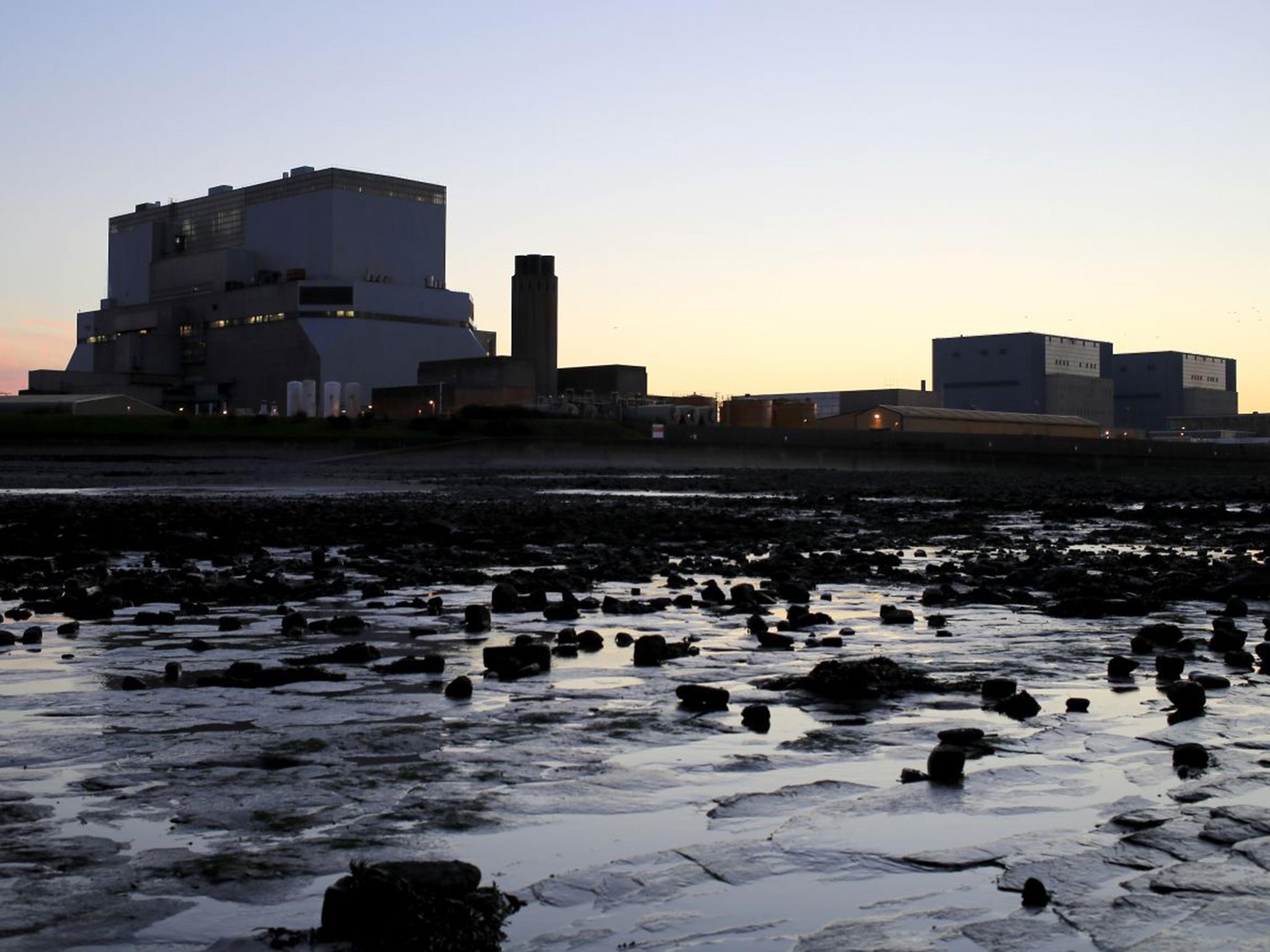Hinkley Point: Government’s decision to put contract on hold is bewildering, unions say
EDF's directors learnt of the Government’s decision when they read it on the internet

Your support helps us to tell the story
From reproductive rights to climate change to Big Tech, The Independent is on the ground when the story is developing. Whether it's investigating the financials of Elon Musk's pro-Trump PAC or producing our latest documentary, 'The A Word', which shines a light on the American women fighting for reproductive rights, we know how important it is to parse out the facts from the messaging.
At such a critical moment in US history, we need reporters on the ground. Your donation allows us to keep sending journalists to speak to both sides of the story.
The Independent is trusted by Americans across the entire political spectrum. And unlike many other quality news outlets, we choose not to lock Americans out of our reporting and analysis with paywalls. We believe quality journalism should be available to everyone, paid for by those who can afford it.
Your support makes all the difference.The sudden decision to put on hold the £18bn contract for a new nuclear power plant at Hinkley Point is “bewildering and bonkers”, a furious union official has said.
There are fears for the 25,000 jobs that depend on the vast project, which was to be financed jointly by the French energy firm EDF and the Chinese – though environmentalists and others hoped the delay will lead to it being scrapped outright.
The Government’s decision to put the contract on hold until the autumn came as a complete surprise to EDF’s board, who agreed only on Thursday evening, by 18 votes to seven, to go ahead with it. They will put the money for two thirds of the construction costs, with the other third coming form China.
EDF's directors learnt of the Government’s decision when they read it on the internet on Friday morning. Senior EDF executives were due to be Somerset to launch the project, but cancelled the visit at short notice.
Justin Bowden, national secretary for energy of the GMB union, said: “Theresa May's decision to review the go-ahead is bewildering and bonkers. After years of procrastination, what is required is decisive action not dithering and more delay.
”This unnecessary hesitation is putting finance for the project in doubt and 25,000 new jobs at risk immediately after Brexit. It is a gross error of judgment and must be reversed.”
Labour also denounced the “chaos” that threatened to have diplomatic repercussions just as the UK was beginning the delicate task of negotiating an exit from the EU.
Shadow Energy Secretary Barry Gardiner said: “The Tories are in chaos. Ministers have claimed Britain is open for business after the referendum, but this delay could deter the investors we need to build a strong economy. This is an appalling signal to send and a humiliating diplomatic move.”
The Government has not publicly given a reason for the delay, but it is thought that Theresa May was reluctant to commit to such a major construction project so early in her premiership, and wants to take more advice.
Jean-Bernard Lévy, chief executive of EDF, seemed confident that she would eventually agree to go ahead. “I have no doubt about the support of the British government led by Ms May,“ he said.
Ian Liddell-Grainger, the Tory MP whose constituency included the proposed site of Hinkley Point, said: “Theresa May is doing the right thing. She wants to read herself into it. It’s a 90,000-page submission; it’s taken years to get to this stage, and she hasn’t been part of it. She’s doing due diligence, but the project will go ahead, I’m absolutely confident of that.”
A previous Conservative government in effect gave up building new nuclear plants when their true cost was exposed during the privatisation of the electricity industry at the end of the 1980s, but the more recent need to reduce reliance on gas and coal, to slow down climate change, convinced David Cameron’s government that the nuclear industry should be revived.
Tom Greatrex, chief executive of the Nuclear Industry Association, said: “The Government’s decision to take longer to look at the contract do not change the fundamentals – that by 2030, two-thirds of our electricity generation capacity will have retired, and we need to replace it with low carbon and reliable power for the future.”
He urged the government to come to a quick decision to go ahead.
But the delay was welcomed by environmental campaigners and others, who hoped that it was a sign that the project might be scrapped outright. Mike Childs, from Friends of the Earth, described the Government’s decision as “an opportunity to do the right and popular thing and end support for Hinkley.”
He added: “Margaret Thatcher cancelled the nuclear build programmes in the early 1990s because the economics were dreadful. Hopefully Theresa May is about to do the same. Renewables and energy storage are a much better deal.”
Kate Hudson, general secretary of CND, which has long opposed civil nuclear power as well as nuclear weapons, added: “Even supporters of nuclear power now recognise how bad this deal is. The cost of nuclear power has continued to rise as the cost of renewable energy has fallen sharply. Renewable energy is now the future – this is where investment is needed – not billions on outdated, dangerous and expensive nuclear energy.”
Join our commenting forum
Join thought-provoking conversations, follow other Independent readers and see their replies
Comments